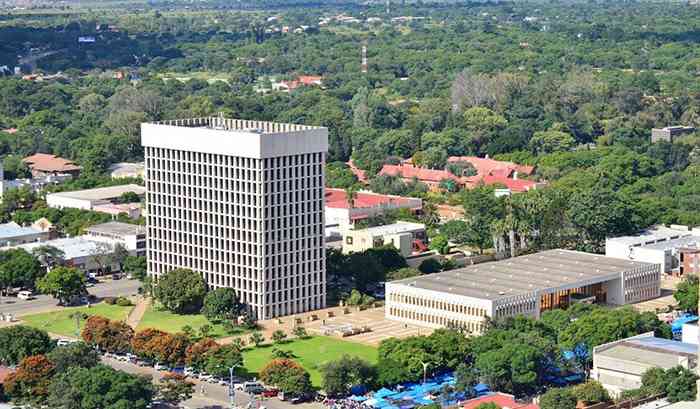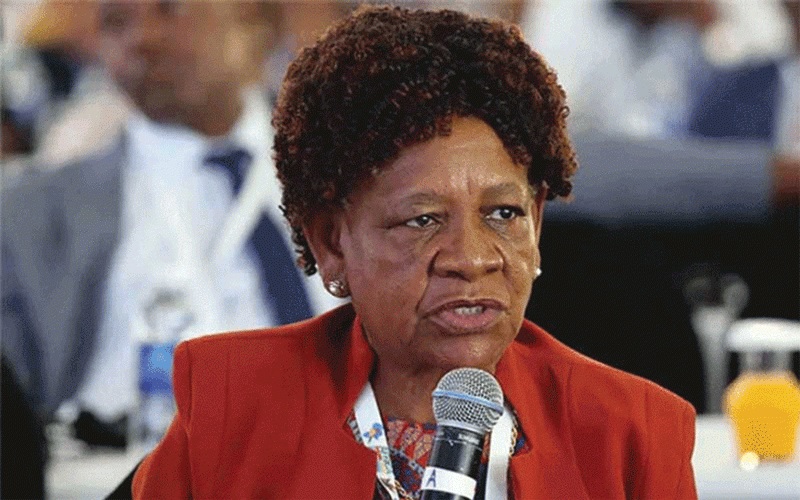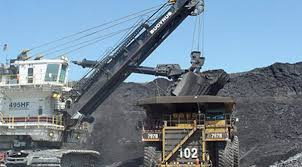
THE Joint Portfolio Committee on Local Government, Public Works and National Housing and the Thematic Committee on Sustainable Development Goals has recommended the utilisation by Bulawayo City Council (BCC) of water from Aiselby waste water treatment plant and the contaminated Khami Dam to alleviate the shortage of the precious liquid in the city.
Bulawayo has been facing perennial challenges in water supply for over two decades, a situation that has grossly undermined the right to access water by residents.
According to the committee, 2024 was particularly different, with a cocktail of environmental factors which include the debilitating effects of the 2023/24 El Niño- induced drought being felt across the country.
“These environmental factors position Bulawayo City Council’s water supply situation in a dire and precarious position that needs immediate attention and renewed impetus towards finding lasting solutions,” the committee said.
“It was in light of this that the Joint Portfolio Committee on Local Government, Public Works and National Housing and the Thematic Committee on Sustainable Development Goals conducted an enquiry into the state of water supply in Bulawayo to understand the gravity of the situation and ascertain the depth and magnitude of the government’s thrust towards addressing the water supply problem in Bulawayo,” the report said.
It was also established that the decommissioned Khami Dam had great potential to address the water challenges through instituting technology for reclaiming waste water for domestic consumption.
“Reclaiming waste water for domestic use is an economically viable option to aid Bulawayo to address the water crisis in the short- to medium-term. The committee observes that countries such as Namibia have been utilising waste water recycling for domestic consumption in Windhoek, the city.
“Windhoek has been transforming waste water to potable water for 50 years. Since 2002, the city has been providing 35% of drinking water for nearly 400 000 inhabitants,” the committee noted.
- Bulawayo struggles to clear housing backlog
- Bulawayo struggles to clear housing backlog
- Egodini developer changes tune
- Outcry over city’s new rates, tariffs
Keep Reading
The report said it was critical to start thinking about water recycling in times of crisis such as the one facing Bulawayo.
“BCC through a well-coordinated multi-stakeholder approach involving communities in Nyamandlovu, farmers, Bulawayo City Council security personnel and the Zimbabwe Republic Police must ensure the safety and protection of transformers pumping borehole water within the Nyamandlovu aquifer area by 31 July, 2025,” the report said.
“The Ministry of Lands, Agriculture, Water, Climate, Fisheries and Rural Development through its parastatal ZINWA must repair and rehabilitate all the damaged boreholes and replace the transformer and powerlines destroyed by vandalism at the Epping Forest and Nyamandlovu Aquifer by 30 August 2025.”
It said Bulawayo should strengthen its revenue collection efforts on water tariffs and sewage and ring fence the revenue for repairs and maintenance of the water reticulation system and sewage infrastructure to reduce non-revenue water losses by December 31 this year.
It said council should introduce smart metering for accurate billing as well as curbing non-revenue water losses through the repair of leaks within its water networks such as the Magwegwe reservoir by June 30, 2025.
It further called on the Lands, Agriculture, Water, Fisheries and Rural Resettlement ministry to consider the proposed construction of the Glasgow Dam as a medium-term measure to address Bulawayo’s water crisis by end of year.
The committee also urged the Finance, Economic Development and Investment Promotion ministry to ensure timely release of funds to support ongoing works at Gwayi-Shangani Dam by the end of second quarter of this year.
“BCC must explore the viability and feasibility of utilising waste water from the Aiselby waste water treatment plant and the water at the decommissioned Khami Dam for domestic consumption by 31 December 2025,” the committee said.
“The Ministry of Local Government and Public Works in conjunction with the Ministry of Lands, Agriculture, Climate, Fisheries and Rural Development must facilitate the procurement of 10 water bowsers for Bulawayo City Council by 30 August 2025.”
It said addressing Bulawayo’s water supply woes was imperative.
“As the industrial hub and city of national commercial activities, and the route to Zimbabwe from a number of southern African countries, Bulawayo plays a pivotal role in advancing the National Development Strategy (NDS1 and 2) and ultimately achieving Vision 2030 of an upper-middle-income economy.
“Tackling the long-standing issues of water supply is long overdue. The implementation of these proffered recommendations by the committee must be met with an equally enthusiastic response by key stakeholders and government agencies,” the committee said.
The report said the majority of Bulawayo residents blamed the city’s aging water infrastructure which has thus resulted in over 48% of water sources being non-revenue, a scenario which has further exacerbated the water shortage.
“The residents highlighted that water scarcity has compromised their health, with an increased risk of water-borne diseases particularly in high-density suburbs.
“The committee established that BCC faces a significant water supply deficit, with a daily demand of 165 mega litres against a current supply capacity of 120 mega litres.
“The city’s water is sourced from five dams, as well as the Nyamandlovu Aquifer and Epping Forest boreholes. During its visit to three key dams — Umzingwane, Lower Ncema and Upper Ncema — the committee observed a concerning situation.”
Umzingwane Dam was decommissioned in November 2023, while Upper Ncema and Lower Ncema are set to be decommissioned on September 28 and November 30, 2024, respectively.
The decommissioned dams leave Bulawayo solely dependent on Umtshabezi, Insiza and Inyakuni dams, alongside the Nyamandlovu and Epping Forest boreholes.








